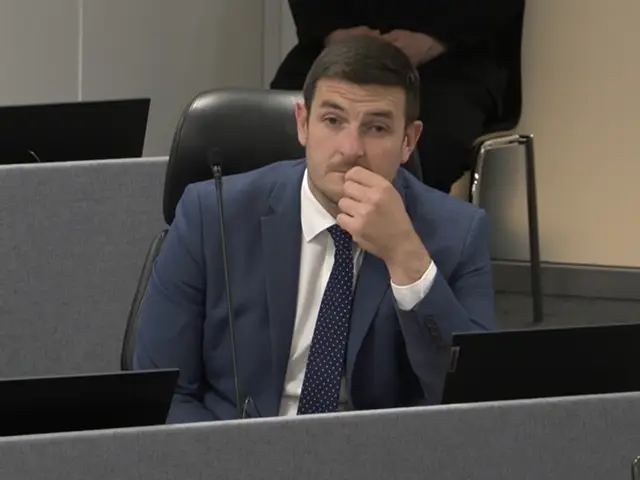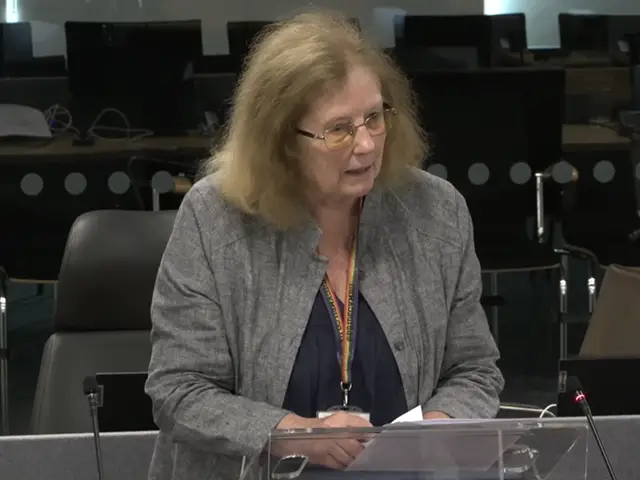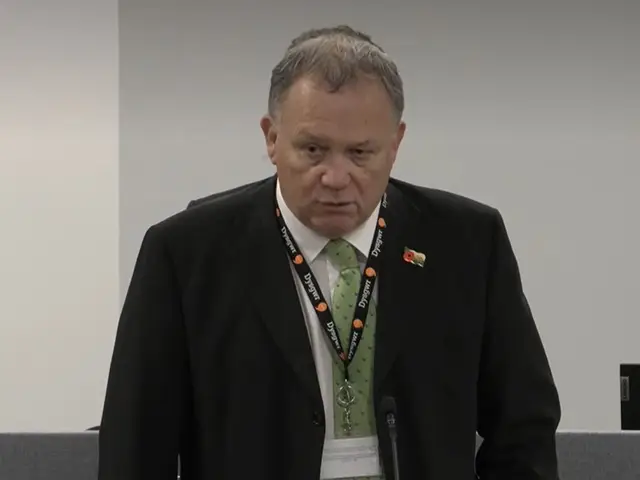Support quality, independent, local journalism…that matters
From just £1 a month you can help fund our work – and use our website without adverts. Become a member today

Plaid Cymru has accused the Labour Welsh Government of allowing plans for a national care service to become “painfully slow” and “drag on without direction”.
Mabon ap Gwynfor bemoaned progress on an ambition to create a national care service free at the point of need, which would aim to ensure parity between health and care.
The shadow health secretary said: “Under this government, progress has been painfully slow. What started as a bold vision has been allowed to drag on without direction.
“Because any plan, no matter how worthy, is not fit for purpose without the political will to drive it forward. We need urgent action. We need clarity on ambition.
“We need a map to set out how the national care service will bring together services, funding and accountability to deliver and ensure that people and their families are not let down.”
‘Moral test’
Plans to explore a national care service for Wales were agreed as part of the co-operation agreement between Plaid Cymru and the Welsh Government which collapsed in 2024.
During a debate in the Senedd on Wednesday November 5, Mr ap Gwynfor warned social care had become a “forgotten pillar” of the health system.
He told the Senedd: “The moral test of any government is how it treats those who give care and those who need it. It’s time to pass that test.
“So, let’s accelerate the process towards a truly national care service – one that delivers on its promises, values its people, and gives dignity to every citizen it serves. Because when we care better, we all live better.”
James Evans, the Conservatives’ shadow health secretary, warned the Labour-Plaid Cymru plan to establish a national care service had failed to deliver any meaningful change.

‘Invisibility’
“Years on, we’re still lacking that clear structure, the accountability and the measurable outcomes of what that national care service is going to deliver,” he said.
Mr Evans criticised the “ongoing failure” to build and retain a sustainable care workforce , with staff facing low pay and poor progression despite being on the front line.
Warning of unacceptable delays for unpaid carers to receive support, he advocated introducing a legal right to a guaranteed 14 days of respite care each year.
Sioned Williams, Plaid Cymru’s shadow social justice secretary, said more than 300,000 people care for a loved one across Wales, holding families together.
She told Senedd Members: “While their care keeps services afloat, worth over £10bn a year, they themselves are sinking – into exhaustion, financial hardship and, too often, invisibility.”
‘Unsustainable’
Ms Williams described delivery of carers’ needs assessments – a right under the Social Services and Wellbeing Act 2014 – as having fallen desperately short.
“We can’t let this continue,” she warned, urging ministers to close the gap between rhetoric and reality. “The consequences, both human and financial, are absolutely unsustainable.”
Labour’s Julie Morgan, a former social care minister who now sits on the backbenches, said the Welsh Government has worked to set out the parameters of a national care service.

While in government, Ms Morgan established an expert group with the aim of moving towards a national care service but she said “we’ve had very difficult financial times”.
She hailed the introduction of the real living wage, currently £13.45 an hour, for all social care workers and a £100-a-week cap on domiciliary care in Wales.
‘Deadlocked’
Siân Gwenllian, who cares for her mother, said it is a privilege but also a source of strain. The Plaid Cymru politician said: “Most carers are in a far more difficult position than me.
“And I sympathise a great deal with those carers who have to give up their work, who find it difficult to access support, who live in poverty and have to face a system where they cannot access the rights nor the respite opportunities that they deserve.”

Caerphilly MS Lindsay Whittle spoke of his own sister’s experience of being in and out of hospital “unnecessarily” following a severe stroke – and questioned how much money could have been saved had she been given a care package and looked after at home.
“Social care is vital and we will all probably end up needing it. We probably all will. That is the reality of life, I’m afraid,” he said.
Responding to the debate, Dawn Bowden, Wales’ social care minister, committed to funding a national short-break scheme and carers’ support fund for a further three years from 2026.
She defended the Welsh Government’s ten-year phased approach to reform, saying she was surprised to hear criticism of protracted progress given Plaid Cymru agreed to the approach.
In the votes following the debate, the Senedd was deadlocked – rejecting every proposal before it, from Plaid Cymru’s motion to the Conservative and Labour amendments.

Support quality, independent, local journalism…that matters
From just £1 a month you can help fund our work – and use our website without adverts.
Become a member today
